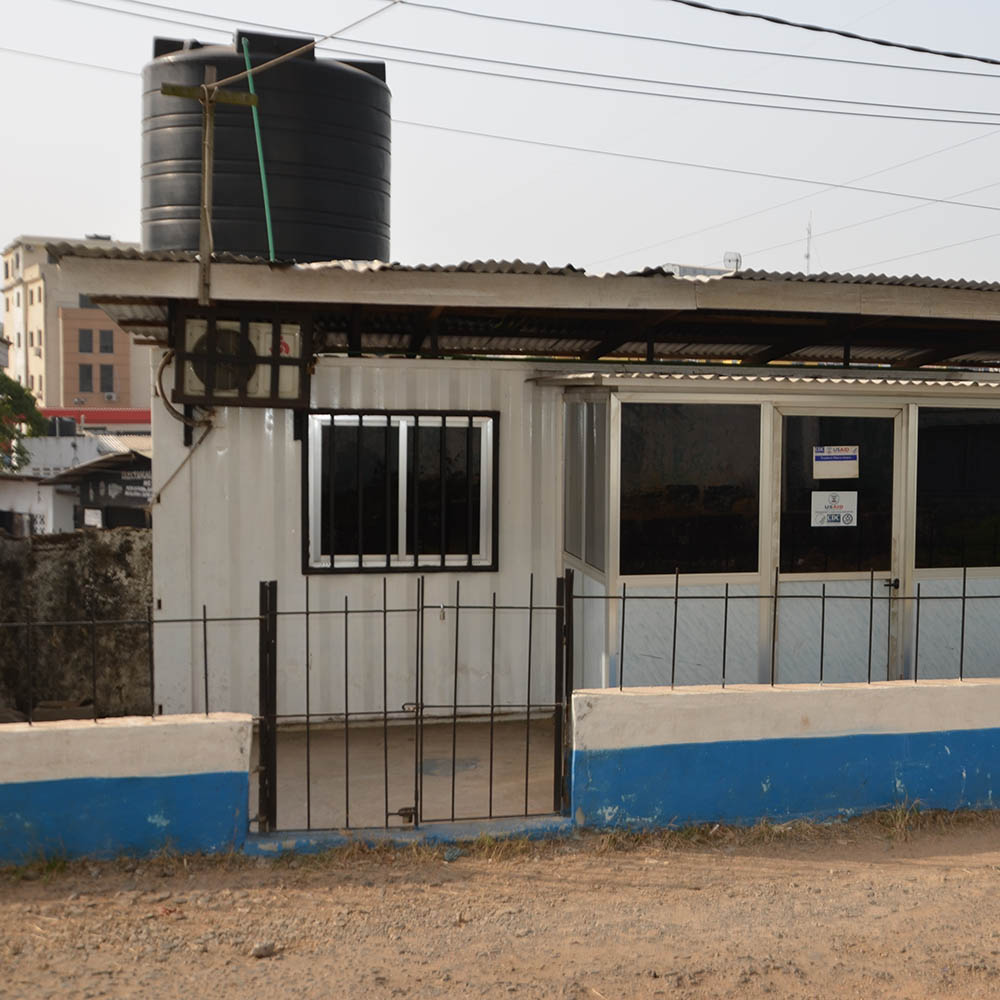
This insectary is one of PMI’s contributions to building capacity for entomological monitoring in Liberia. Credit: Jerry Gardiner, USAID/Liberia
Malaria is the major cause of morbidity and mortality in Liberia. The disease accounts for an estimated 33 percent of all in-patient deaths and 41 percent of deaths among children under five. Monitoring local malaria mosquito vector populations is an important component of efforts to reduce the morbidity and mortality associated with this deadly disease, but Liberia has lacked this capacity for much of the past decade. Assistance from the President’s Malaria Initiative (PMI) has helped to rebuild national capacity for entomological monitoring in support of Liberia’s national malaria control program (NMCP).
Prior to Liberia’s civil war, the Liberia Institute for Biological Research (LIBR) laboratory made significant contributions to the fields of medicine and public health, but their facilities were damaged during the war. Starting in 2008, to support malaria control efforts, the NMCP began working to establish a functional insectary – a facility to rear and monitor malaria in mosquito populations – on the LIBR campus. However, the location of the facility, far from NMCP offices, combined with lack of reliable power and water supply, presented formidable barriers to operating an insectary, which requires daily access to feed, raise, and sustain mosquitos for testing.
To address these challenges, PMI supported the Liberian Government to establish an “insectary-in-a-box” using two converted shipping containers, modeled after a similar approach implemented in other PMI focus countries. In fiscal year 2014, PMI helped to establish the new insectary directly inside the NMCP compound, just a short walk from the offices of technical staff. With ready access to the laboratory, technicians can now monitor the mosquito population more closely to ensure their survival and easily conduct insecticide resistance tests.
Establishment of the laboratory on-site has allowed the NMCP to begin routine surveillance at two designated sites. Liberian technicians now use the laboratory to conduct testing against the four current classes of insecticides to determine resistance or susceptibility in the majority of counties within a one-day drive of Monrovia. Information gained from routine surveillance and insecticide resistance mapping will provide local data that can be used to assess the impact of long-lasting insecticide-treated mosquito nets, and inform decisions around future use of insecticides for indoor residual spraying.
The new insectary established with PMI support represents a success in building Liberian capacity to lead and manage malaria control efforts; despite the Ebola crisis, the facility continued its operations without external entomological staff support.
